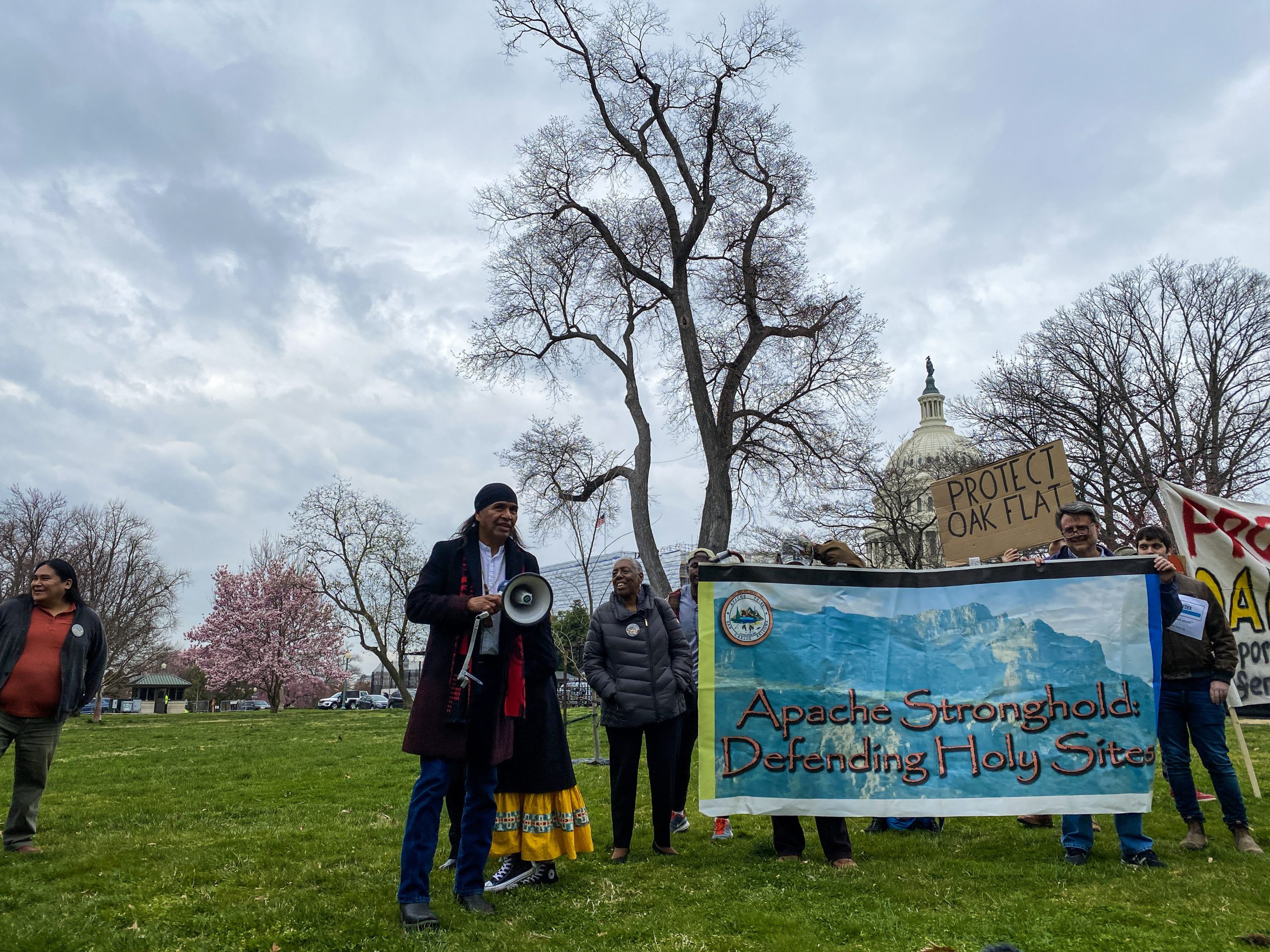Indianz.Com > News > Apache Stronghold heads back to court to protect sacred Oak Flat
Apache Stronghold heads back to court to protect sacred Oak Flat
Tuesday, September 6, 2022
Indianz.Com
The fight to protect a sacred site from development is once again back in court as defenders of Oak Flat seek another shot at stopping a huge copper mine on Apache territory.
The Apache Stronghold, a group authorized by the San Carlos Apache Tribe to protect Oak Flat, was dealt a setback in June when the Ninth Circuit Court of Appeals refused to stop the controversial project. But as with many contentious issues in Indian law and policy, the ruling in and of itself was not conclusive.
One member of the three-judge panel that heard the case in fact concluded that the copper mine would lead to the destruction of Chi’chil Biłdagoteel, as the sacred place is known in the Apache language.
“Oak Flat is the place we have connected with our Creator for millennia, and the generations that follow us deserve to continue this holy tradition,” observed Dr. Wendsler Nosie Sr., a former chairman of the tribe and a leader of the Apache Stronghold.


9th Circuit Court of Appeals Decision
Apache Stronghold v. United States of America (June 24, 2022)
Related Stories
Search
Filed Under
Tags
More Headlines
Montana Free Press: Blackfeet Nation citizens cite treaty rights in lawsuit over tariffs
Cronkite News: A ‘mural with a message’ rises in Arizona
Chuck Hoskin: Cherokee Nation is an economic powerhouse
Native America Calling: Philanthropy fills in the gaps
AUDIO: Examining 50 years of the Indian Self-Determination and Education Assistance Act in Indian Country
Native America Calling: The next 50 years of self-governance
Cronkite News: Food sovereignty movement promotes Native foods
VIDEO: Examining 50 years of the Indian Self-Determination and Education Assistance Act in Indian Country
Native America Calling: Fresh Native creativity with a new play and new television show
AUDIO: Native American Education – Examining Federal Programs at the U.S. Department of Education
VIDEO: Native American Education – Examining Federal Programs at the U.S. Department of Education
Native America Calling: Indigenous business and the unpredictable new trade landscape
Written testimony for Senate Committee on Indian Affairs hearing on Department of Education
Native America Calling: An imbalance of deadly force by police in Canada
‘Betrayal’: Indian Country slams closure of Department of Education
More Headlines
Cronkite News: A ‘mural with a message’ rises in Arizona
Chuck Hoskin: Cherokee Nation is an economic powerhouse
Native America Calling: Philanthropy fills in the gaps
AUDIO: Examining 50 years of the Indian Self-Determination and Education Assistance Act in Indian Country
Native America Calling: The next 50 years of self-governance
Cronkite News: Food sovereignty movement promotes Native foods
VIDEO: Examining 50 years of the Indian Self-Determination and Education Assistance Act in Indian Country
Native America Calling: Fresh Native creativity with a new play and new television show
AUDIO: Native American Education – Examining Federal Programs at the U.S. Department of Education
VIDEO: Native American Education – Examining Federal Programs at the U.S. Department of Education
Native America Calling: Indigenous business and the unpredictable new trade landscape
Written testimony for Senate Committee on Indian Affairs hearing on Department of Education
Native America Calling: An imbalance of deadly force by police in Canada
‘Betrayal’: Indian Country slams closure of Department of Education
More Headlines